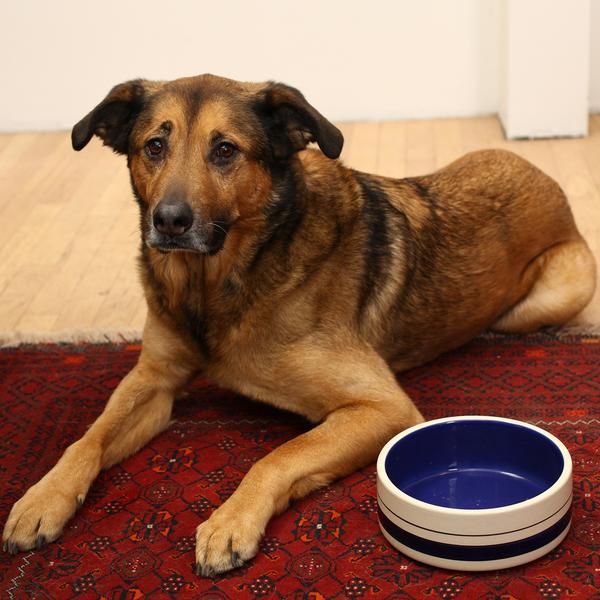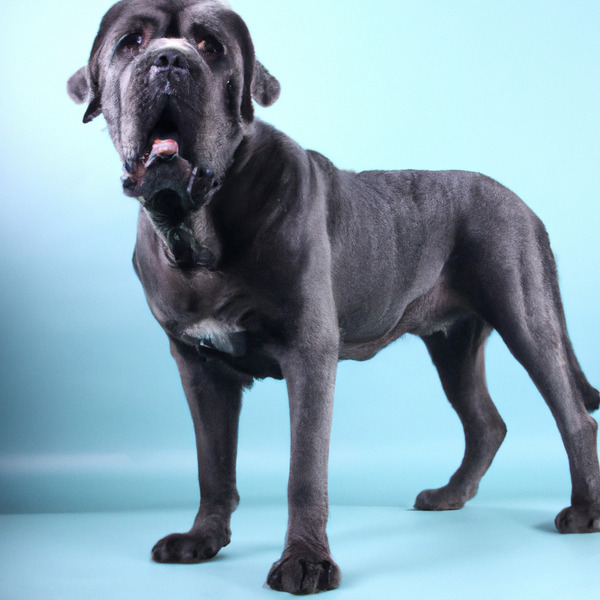Papillon vs. Rat Terrier: Breed Differences and Similarities
Weight Gain Potential
Which breed eats more: Papillon or Rat Terrier?
The Papillon and Rat Terrier breeds have an average risk of becoming obese. Daily walks and a balanced diet of quality dry dog food can help maintain a healthy weight. An active lifestyle and monitoring weight regularly is recommended.
Hypoallergenic
Are Papillons or Rat Terriers hypoallergenic, or neither?
Unfortunately, neither Papillon nor Rat Terrier are hypoallergenic, which may not make them the best choice for dog lovers who suffer from pet allergies.
Temperament
What are the personalities of Papillon and Rat Terrier dogs?
Alert
Friendly
Energetic
Happy
Intelligent
Affectionate
Inquisitive
Loving
Alert
Lively
Shedding Level
Do Papillons shed more than Rat Terriers, or which breed sheds more, Papillons or Rat Terriers?
Papillons shed very little hair, making them a great choice for those who dislike excess hair in the house.
Rat Terriers are heavy shedders, but regular brushing can help manage shedding and promote a healthy coat.
Watchdog Ability
Which dog breed makes a better watchdog, the Papillon or Rat Terrier?
The Papillon and Rat Terrier dogs are average watchdogs. If they sense something different, these breeds will alert their owner.
Origin
What is the origin of Papillon and Rat Terrier dog breeds?
France
United States
Ancestry
What are the origins of Papillon and Rat Terrier breeds?
spitz, spaniel
Terrier, Whippet, Greyhound, Beagle
Breed recognition
Which kennel clubs recognize/register Papillon and Rat Terrier?
American Canine Registry
American Kennel Club
America's Pet Registry
Canadian Kennel Club
Dog Registry of America Inc.
Federation Cynologique Internationale
Kennel Club of Great Britain
North American Purebred Registry, Inc.
American Canine Association, Inc.
Australian National Kennel Council
Continental Kennel Club
National Kennel Club
New Zealand Kennel Club
United Kennel Club
American Canine Registry
American Kennel Club
America's Pet Registry
Dog Registry of America Inc.
North American Purebred Registry, Inc.
American Canine Association, Inc.
Continental Kennel Club
National Kennel Club
United Kennel Club
Date of Birth
When were Papillon and Rat Terrier breeds first developed?
1500
1800s
Breed Group
What is the Breed Group of Papillon and Rat Terrier?
Toy (AKC:1915)
Companion Breeds (UKC)
Terrier (AKC:2013 & UKC)
Litter Size
What is the usual litter size for Papillon and Rat Terrier?
A Papillon can have a litter of 13-16 puppies on average. However, it's worth noting that the size of the litters can vary greatly. Factors that can influence litter size include the health of the mother, breeding history, and genetics.
A Rat Terrier can have a litter of 15-18 puppies on average. However, it's worth noting that the size of the litters can vary greatly. Factors that can influence litter size include the health of the mother, breeding history, and genetics.
Adaptability
Papillon and Rat Terriers are known for their adaptability and versatility. They are capable of adapting well to a wide range of lifestyle changes and living environments, making them great companions for families and individuals of all lifestyles.
Health Issues
Between Papillon and Rat Terrier, which breed is more prone to health problems?
Papillon and Rat Terrier breeds are generally considered to be healthy. However, like all breeds, they are susceptible to certain health issues and it is important to keep an eye out for them and address them with your veterinarian as needed.
Major Concerns
What are the major health concerns for Papillon and Rat Terrier breeds?
Patellar Luxation
Deafness
Hip Dysplasia
Mitral Valve Disease
Patellar Luxation
Elbow Dysplasia
Hip Dysplasia
Minor Concerns
What minor health issues should be kept in mind when owning Papillon and Rat Terrier?
Progressive Retinal Atrophy
Cataracts
Von Willebrand's Disease
Follicular Dysplasia
Demodectic Mange
Epilepsy
Legg-Calve-Perthes Disease
Color Dilution Alopecia
Teeth Issues
Occasional Tests
What occasional tests are recommended for Papillon and Rat Terrier breeds?
Knee
Heart
Dna For Vwd
Hips
X-Rays
Eye Examination
Physical Examination
Hip
Elbow
X-Rays
Dental Examination
Physical Examination
Skin Evaluation
Energy
How do the energy levels of Papillons and Rat Terriers compare?
Papillons' high energy levels make them unsuitable for a low-key dog, choose accordingly.
Rat Terriers thrive on an active lifestyle due to their high-energy nature.
Social Needs
Papillon vs Rat Terrier social needs comparison
Papillon and Rat Terrier have very high social needs. These needs include regular mental and physical stimulation, a job or purpose, and companionship. They thrive in environments where they have a lot of interaction with humans and other dogs.
Exercise Needed
Papillon vs Rat Terrier exercise need comparison.
Papillons need high physical activity and are ideal for active individuals, but not suitable for sedentary lifestyles or small apartments.
Rat Terriers need moderate physical activity and are great for families and active individuals.
Sleeping Need
Which of the two sleeps the most/least: Papillon or Rat Terrier?
Papillons sleep less than other breeds but still need adequate sleep for good health.
Rat Terriers are active and require sufficient sleep to stay healthy.
Drooling Tendency
Which drools more/less, Papillon or Rat Terrier?
The Papillon and Rat Terrier breeds are known for their low drooling tendencies, making them a suitable choice for people who don't want to deal with drool marks on their clothing.
Tendency to Bark
Do Papillons or Rat Terriers bark more/less frequently?
Papillon dogs bark and howl frequently and are not recommended for quiet homes.
Rat Terriers bark moderately when necessary and may also bark due to certain triggers like fear, alarm, boredom, greeting, separation anxiety and compulsive barking.
Territorial
Is the Papillon or Rat Terrier a better guard dog?
Papillon dogs have a strong protective nature and territorial instinct. They are highly vigilant and will fiercely defend their home and family.
Rat Terrier dogs are highly protective and make excellent guard dogs due to their strong instinct to defend their territory and owners, and their high level of vigilance.
Mouthiness
Mouthiness Comparison: Papillon vs Rat Terrier?
Roaming urge
Papillon vs Labrador: Running away tendency?
Prey Drive
Papillon or Rat Terrier - which breed has a higher level of prey drive?
Past times
What are some enjoyable activities and ways to keep Papillon and Rat Terrier entertained?
Walking, Playing, Walk, Sniffing, Catch treats, Off-leash, Chasing Animals, Eating Snacks, Nap
Chase, Sniff, Bark, Trot, Fetch, Tug-of-war, Run, Playing, Chasing, Jumping, Running, Walking, Play, Walk, Play keep away
Tolerance of being left alone
Grooming
Which breed is easier to maintain in terms of grooming, Papillons or Rat Terriers?
The Papillon requires an average amount of grooming compared to other breeds.
The Rat Terrier is a low-maintenance breed that doesn't require much grooming.
Intelligence
Comparing Intelligence: Papillons vs Rat Terriers
Papillon is highly intelligent and very trainable.
Rat Terrier is a very intelligent and trainable breed.
Sensitivity Level
How do Papillon and Rat Terrier compare in sensitivity?
Papillons have average emotions and adapt well to different situations.
This breed is sensitive and requires gentle handling and a calm home environment.
Affection Dependance
Which is the more affectionate dog breed: Papillon vs Rat Terrier?
Apartment Friendly
Which breed is more apartment-friendly: Papillon or Rat Terrier?
Papillons are good apartment dogs as long as they get enough exercise and stimulation outside of the apartment.
Rat Terriers make excellent apartment dogs, being fairly active indoors and not requiring a yard.
Child Friendly
Do Papillons or Rat Terriers have a friendlier temperament towards children?
Papillons are good with kids if socialized and trained from a young age.
Rat Terriers make excellent family pets for kids due to their gentle, protective nature and calm temperament.
Senior-friendly
Which dog is more suitable as a pet for the elderly - Papillon or Rat Terrier?
Cat Friendly
Do Papillon or Rat Terrier breeds have a better compatibility with cats?
Papillons are very friendly with cats and make great companions for them.
Rat Terriers are good with cats, but early training is needed to prevent chasing behavior.
Dog Friendly
Which breed is more sociable with other dogs: Papillon or Rat Terrier?
Papillons are less friendly towards other dogs, but can improve with socialization.
Rat Terriers are friendly and active companions, and can be good family pets, though their friendliness towards other dogs may vary.
Pet friendly
How do Papillon or Rat Terrier dogs interact with other pets?
Stranger Friendly
Which breed is more friendly with strangers: Papillon or Rat Terrier?
Papillons are highly friendly around strangers.
Rat Terriers are friendly but may bark at strangers, and training is easy due to their intelligence.
Playfulness
Which breed is more playful between Papillon and Rat Terrier?
Papillons are very playful, so adopting an older one might be a better option for a more relaxed experience.
Rat Terriers have an average level of playfulness, enjoying playtime like most dogs but not excessively so.
Trainability
How do the trainability levels of Papillons and Rat Terriers compare?
Papillons are popular for their ease of training and quick learning ability.
Rat Terriers are usually easy to train but require consistency to fully obey commands.
Compare Papillon with other breeds

English Boodle
Papillon vs English Boodle

German Sheprador
Papillon vs German Sheprador

Lha-Basset
Papillon vs Lha-Basset

Polish Tatra Sheepdog
Papillon vs Polish Tatra Sheepdog

French Bulldog
Papillon vs French Bulldog

Mauzer
Papillon vs Mauzer

French Masti-Bull
Papillon vs French Masti-Bull

American French Bulldog
Papillon vs American French Bulldog

Wee-Chon
Papillon vs Wee-Chon

Rat Terrier
Papillon vs Rat Terrier

Miniature Goldendoodle
Papillon vs Miniature Goldendoodle

Neapolitan Mastiff
Papillon vs Neapolitan Mastiff
